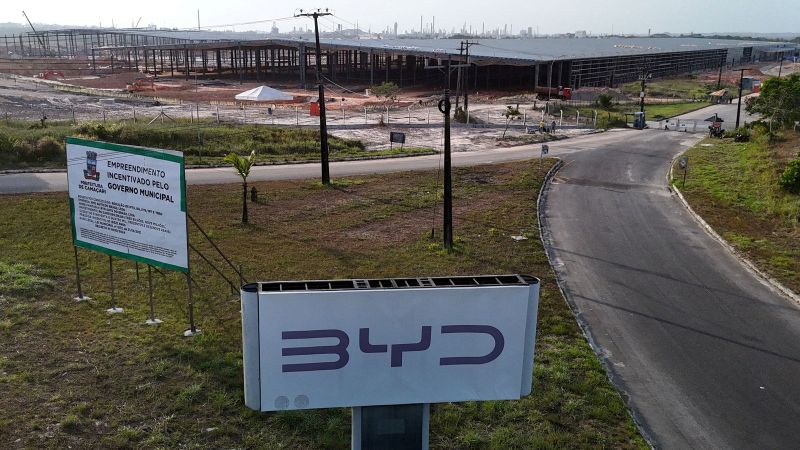Brazil Initiates Lawsuit Against China's BYD Over Alleged 'Slavery' Conditions

Chinese electric vehicle manufacturer BYD, along with two contracting companies, is facing a lawsuit in Brazil over allegations of human trafficking and slave labor conditions. The legal action was initiated by Brazilian prosecutors following the discovery of 220 Chinese workers in dire conditions at a BYD plant construction site in Camacari, located in the northeastern state of Bahia, in December of the previous year.
Bahia's regional ministry for works (MPT) reported finding workers in conditions described as "analogous to slavery." The MPT detailed "degrading working conditions," including workers sleeping without mattresses and, in one instance, 31 individuals sharing a single bathroom. Furthermore, laborers exhibited "visible signs of skin damage" attributed to prolonged exposure to the sun during long working hours. The MPT also raised suspicions of "forced labor," citing illegal clauses in employment contracts, confiscation of passports, and employers withholding as much as 70 percent of workers' salaries. It was also reported that armed guards monitored the workers.
In response to the initial public disclosure of these allegations, BYD's Brazilian subsidiary stated it had terminated its contract with Jinjiang, the contractor responsible for the work at the site. Jinjiang, however, denied the slavery allegations.
The current civil suit was filed after BYD, Jinjiang, and another contracting company, Tonghe Intelligent Equipment (now Tecmonta), reportedly refused to sign a "conduct adjustment agreement" proposed by Brazilian authorities. The MPT is now seeking 257 million reais (approximately $45.3 million) for "collective moral damages," in addition to individual compensation for each affected worker.
In a recent statement, BYD affirmed its collaboration with the MPT from the outset of the investigation. The company reiterated its "non-negotiable commitment to human and labor rights" and stated its operations are guided by respect for Brazilian legislation and international labor protection standards. Concurrently, Chinese foreign ministry spokeswoman Mao Ning commented that Beijing "places great importance on protecting and safeguarding workers' legitimate rights and interests" and mandates that Chinese companies "operate in compliance with laws and regulations."







